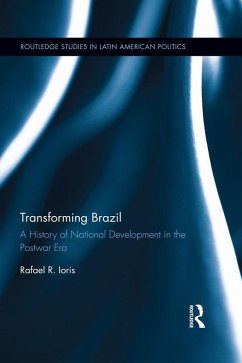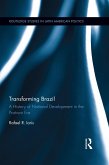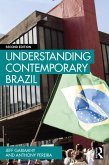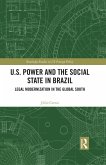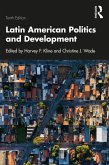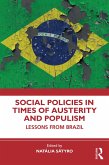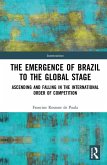Combining original sources of political, diplomatic, intellectual, cultural, and labor histories, Ioris provides a comprehensive history of the fruitful debates concerning national development in postwar Brazil, a time when the so-called country of the future faced one of its best moments for consolidating political democracy and economic prosperity. He argues that traditional views on political instability have been excessively grounded on an institutional focus, which should be replaced by in-depth analysis of events on the ground. In so doing, he reveals that as national development meant very different things to multiple different social segments of the Brazilian society, no unified support could have been provided to the democratically elected political regime when things rapidly became socially and politically divisive early in the 1960s.
Innovating in its multidimensional analytical scope and interdisciplinary focus, Transforming Brazil provides a rich political, cultural, and intellectual examination of a historical period characterized by rapid socio-economic changes amidst significant political instability and the heightened ideological polarization shaping the political scenario of Brazil and much of Latin America in the Cold War era.
Dieser Download kann aus rechtlichen Gründen nur mit Rechnungsadresse in A, B, BG, CY, CZ, D, DK, EW, E, FIN, F, GR, HR, H, IRL, I, LT, L, LR, M, NL, PL, P, R, S, SLO, SK ausgeliefert werden.
-Joel Wolfe, University of Massachusetts
"Rafael Ioris properly dispels the notion of late 1950s Brazil as embodied in the image of a smiling Juscelino Kubitschek overseeing the construction of Brasília and a dispute-free march towards national development. Ioris delves into the era's ideological debates and the lives of working-class people to provide us with a more realistic view of the challenges inherent in transformative human endeavors. Ultimately, Ioris sheds critical light on the years leading up to one of the most intriguing yet tragic developments of modern Latin America: the overthrow of Brazil's democratically elected government in 1964. Ioris's work is a must-read for anybody wishing to comprehend Brazil's subsequent efforts to further project itself globally."
-Kenneth P. Serbin, University of San Diego
'Drawing on a vast array of published and archival sources, Rafael Ioris has produced a sophisticated analysis of the debates about national development in postwar Brazil. This study offers fresh insights into the hopes and dreams of an impressive array of interest groups-including politicians, technocrats, labor leaders and many others-who sought to make the 'country of the future' into a developed nation.'
-Marshall C. Eakin, Vanderbilt University
'This well-researched book offers a rich picture of the trajectory of development in the JK years and will serve as a valuable reference.'
-Thomas D. Rogers, Varia Historia, Belo Horizonte
'The historical material contributed here is rich and adds value to the work ... he brought aspects of Brazilian foreign policy into the national debate on developmentalism, unknown to non-specialists in the field, as is my case, as well as dimensions of the mass culture-advertising and consumption-conceptions that are little associated with the theme. He was quite successful in his intention, making his work recommendable, especially to new students of the subject.'
-Maria Rita Loureiro, Brazilian Political Science Review
'Though scholars have long debated the conceptual significance of postwar developmental policies in Latin America, Transforming Brazil innovates in examining how concrete historical actors thought of and acted to advance their own, at times divergent positions about the ever more divisive and influential theme of national development. The analysis is based on a diverse and largely unexamined collection of materials, including official government documents, intellectual works, business publications, and labor newspapers, brought together under the overarching goal of reconstructing, from several different angles, the rich socio-cultural mosaic that defined the 1950s in Brazil.'
-Brasil Wire

